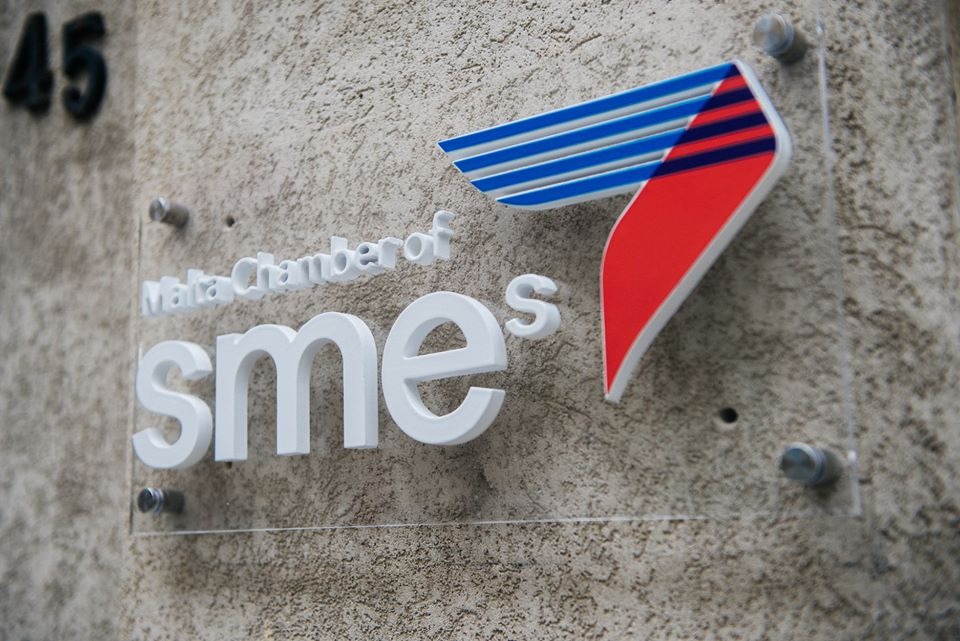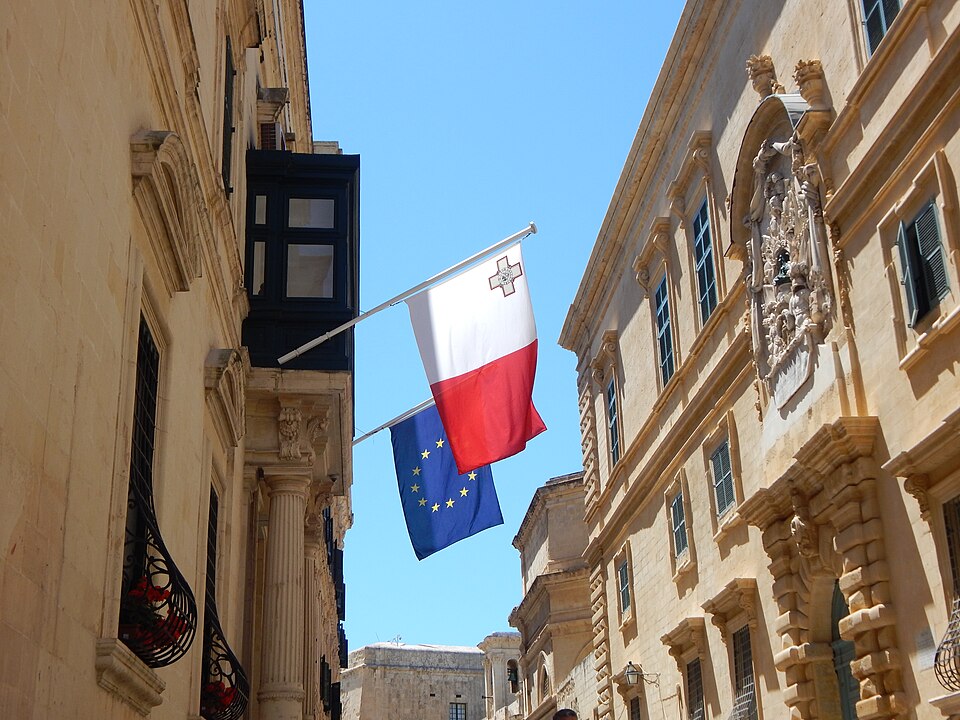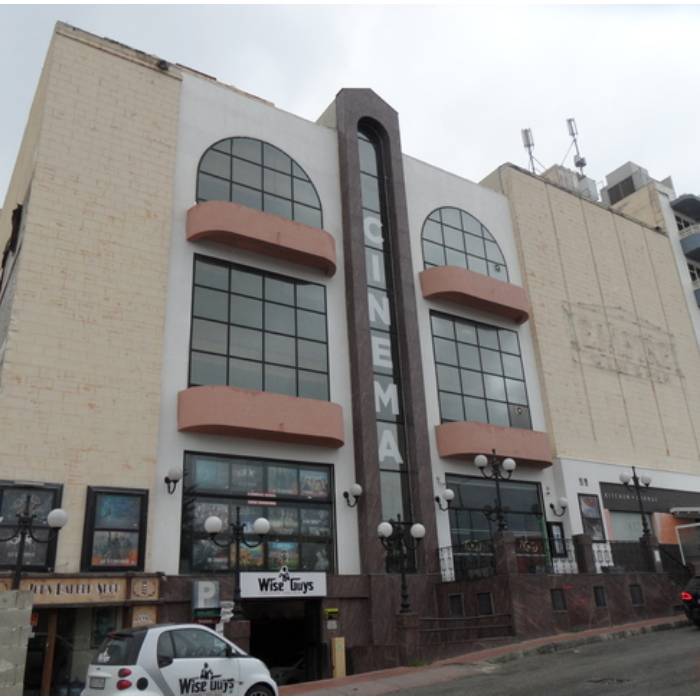The Chamber of Small and Medium Sized Enterprises (SMEs) is calling on Government to eliminate excise tax from everyday consumer goods and reduce VAT to counter the negative effects of rising prices that are decreasing purchasing power.
Speaking at a press conference presenting the results of a survey measuring business confidence and proposals to address key challenges affecting Maltese businesses, the Chamber of SMEs said that although rising prices are beyond the power of Government to control, it can take effective action with the tools at its disposal.
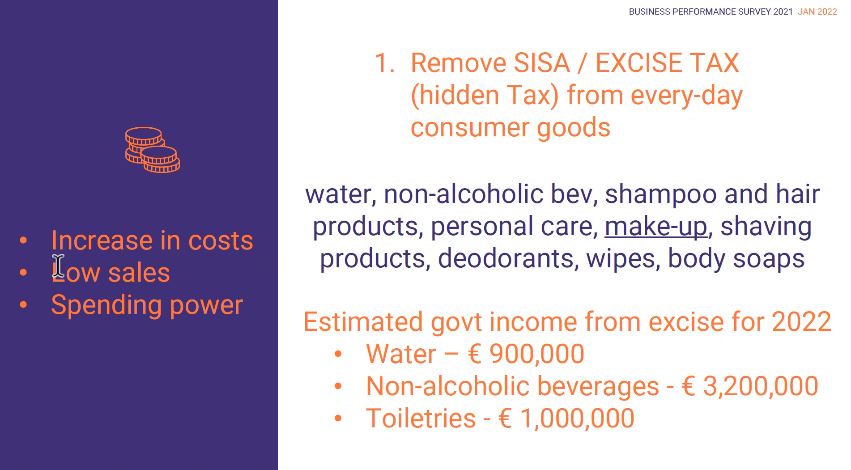
Excise tax (sisa) is charged on many everyday products, including personal care products, soaps, wipes, deodorants, water, non-alcoholic beverages, and make-up, some of which have seen increased use during the pandemic.
The estimated revenue from the excise tax on water in 2022 is €900,000, while for non-alcoholic beverages it is €3.2 million and for toiletries €1 million.
“Removing excise duty has a direct impact on consumers’ wallets, leaving them with more money,” said Chamber of SMEs CEO Abigail Agius Mamo.
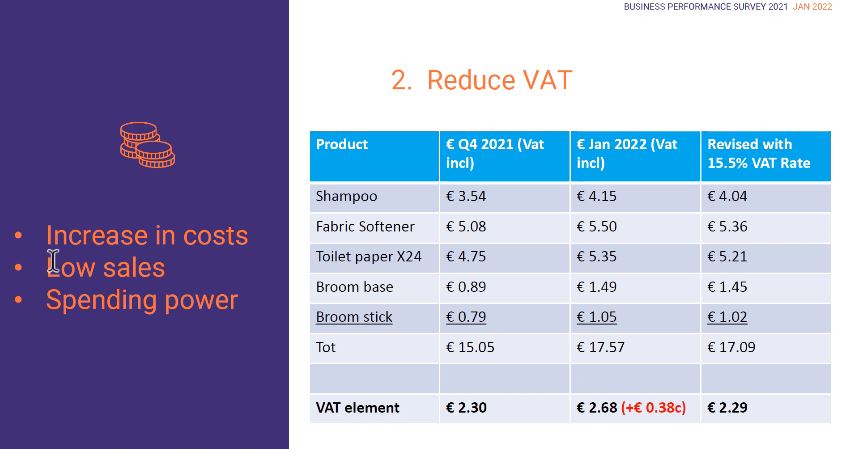
The SME Chamber also called for a reduction in the VAT rate to 15.5 per cent so that Government does not “unintentionally benefit” from price increases.
The Maltese standard rate of 18 per cent Value Added Tax (VAT) is charged on the item’s final price. This means that the VAT collected on a product increases in line with its price, compounding the effect of rising prices at the expense of the consumer.
Government can counter this by introducing a reduction in the standard rate of VAT to 15.5 per cent. This would bring total VAT revenue per product back down to the level seen prior to the price increases.
A further reduction in the VAT rate to 15 per cent would help make up for the price increases seen in product categories that are exempt from VAT, like food.
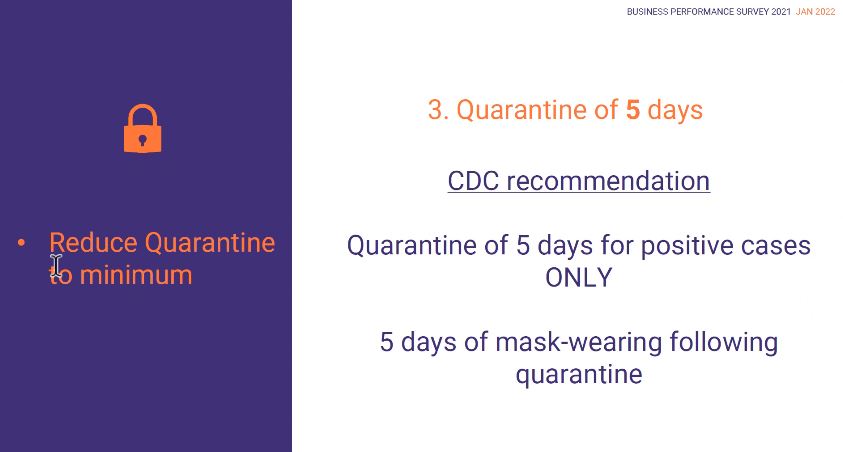
The next two proposals are aimed at helping businesses find suitable talent in a labour market beset with structural and COVID-19-related challenges.
The Chamber of SMEs called for a reduction in the quarantine period to five days for positive cases, followed by five days of mandatory mask-wearing, in line with the recommendation of the United States’ Centre for Disease Control and Prevention (CDC).
The SME Chamber is joining a chorus of other business lobbies calling for scaled back quarantine measures who have insisted that it makes the regular operation of business “impossible”.
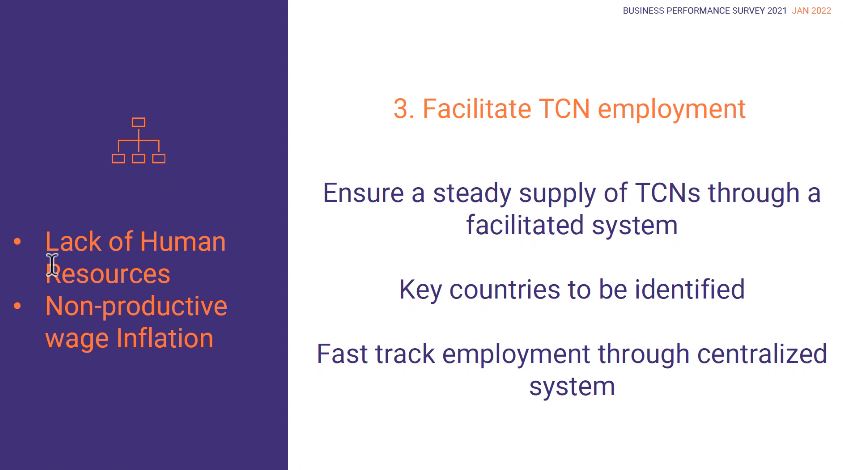
Malta’s economic development has outstripped the resources available in the local pool of labour, and the country’s reliance on foreign talent must be acknowledged by making it easier for businesses to find workers from outside the European Union, the SME Chamber said.
It proposed a “facilitated system” whereby workers from “key identified countries” are eligible for a fast track process for work permit and visa approval, saying this will counteract “non-productive wage inflation”.
Such key countries can be chosen by analysing work permits granted over the last years and selecting those countries whose workers have a high rate of approval into Malta and have the appropriate talent pool for local employers’ needs.
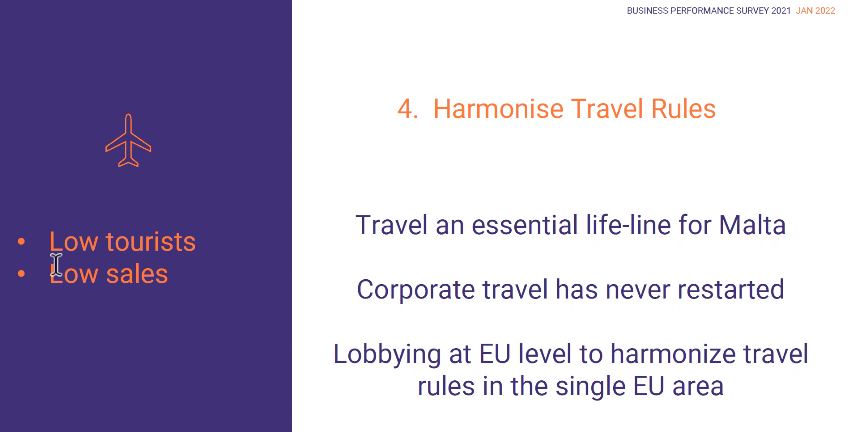
Finally, the SME Chamber also proposed bringing Malta’s travel rules in line with the European Union standard. It noted that tourism is a key lifeline for Malta, and that although there have been promising early signs of a recovery, certain segments, like corporate travel, have not yet restarted.
Business Confidence Survey
The Chamber of SMEs’ survey among its members revealed that 2021 was less profitable than 2020 for 39 per cent of businesses, while only 29 per cent found it more profitable.
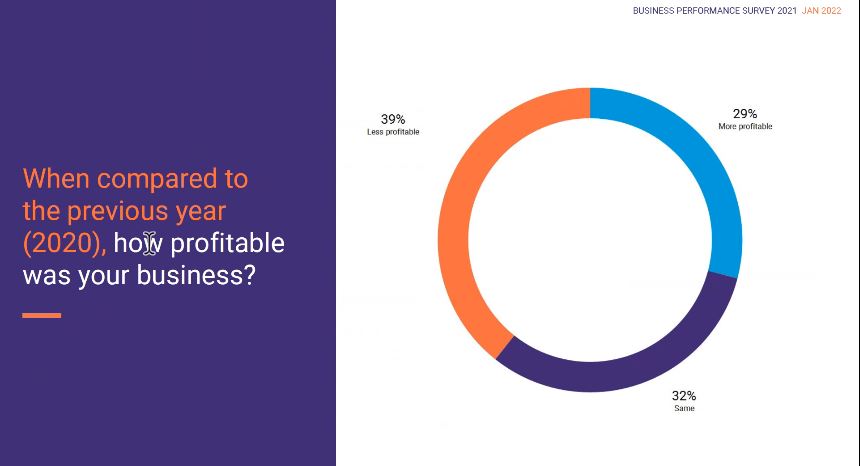
The total proportion of businesses satisfied or dissatisfied by sales over the Christmas festive season was equal, at 34 per cent each, but within these, more were very dissatisfied with sales (10 per cent) than were very satisfied (5 per cent).
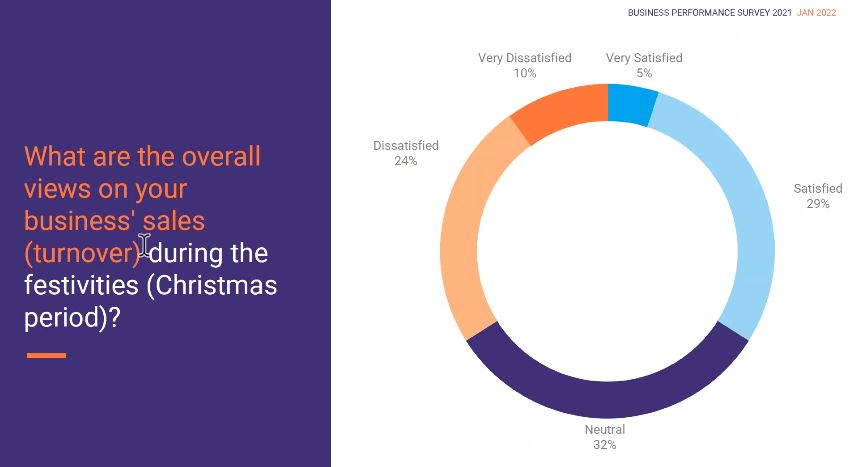
When comparing the 2021 festive season to the one of the preceding year, a majorty (40 per cent) said it was roughly the same, but a full fifth said it decreased by over 20 per cent when compared to 13 per cent who said it increased by the same amount.
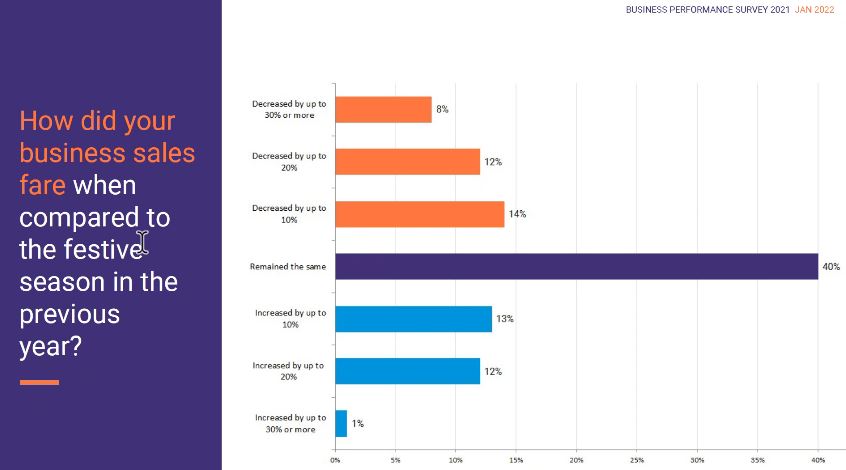
Few (17 per cent) believe 2022 will be worse than 2021, with a majority (44 per cent) expecting it to be better. Almost as many (39 per cent) believe it will be the same.
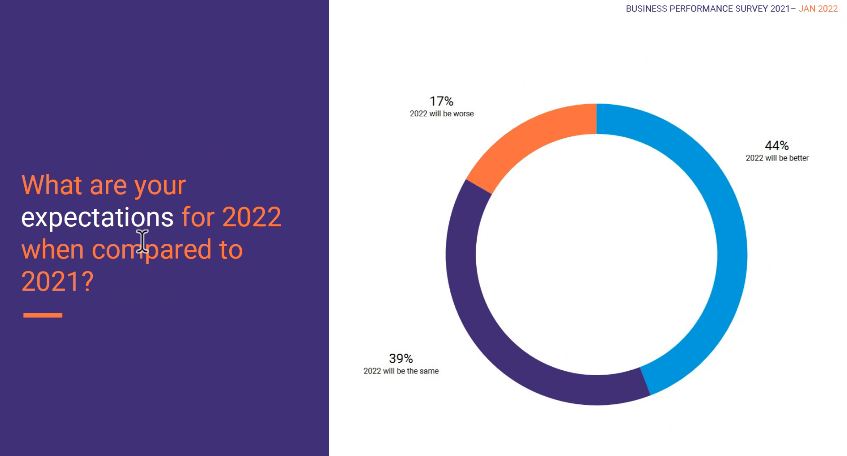
The uncertainty from the COVID-19 pandemic continues to weigh heavily on local businesses, with the two most popular responses when questioned about upcoming business plans being to “stay the same” (26 per cent) and “still uncertain” (16 per cent).
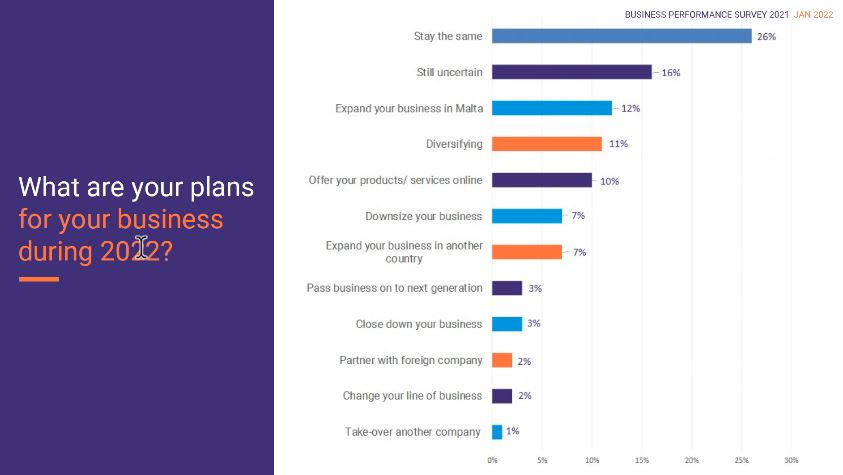
Over a tenth of the businesses surveyed are planning to expand their business (12 per cent) while another 11 per cent want to diversify.
The shift to digital continues, with one in 10 businesses planning to shift their product and service offering online.
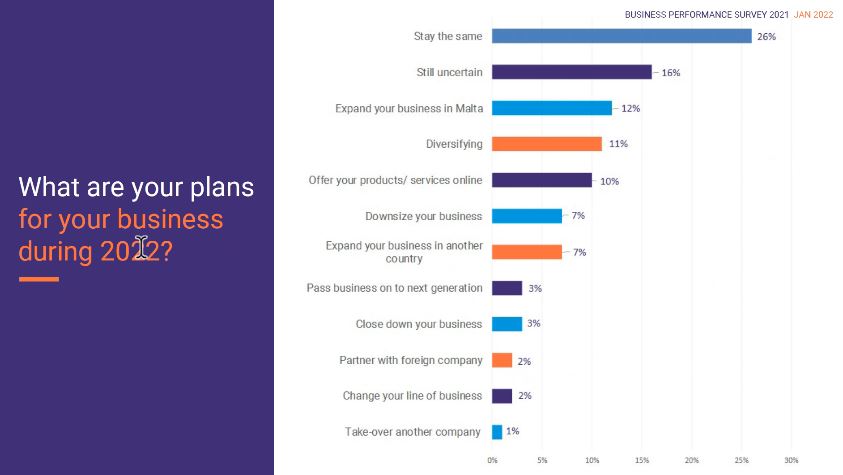
Asked about the major challenges they foresee for 2022, the answer most commonly chosen by the survey respondents was increasing costs (16 per cent), followed by concerns about the economic recovery from COVID-19.
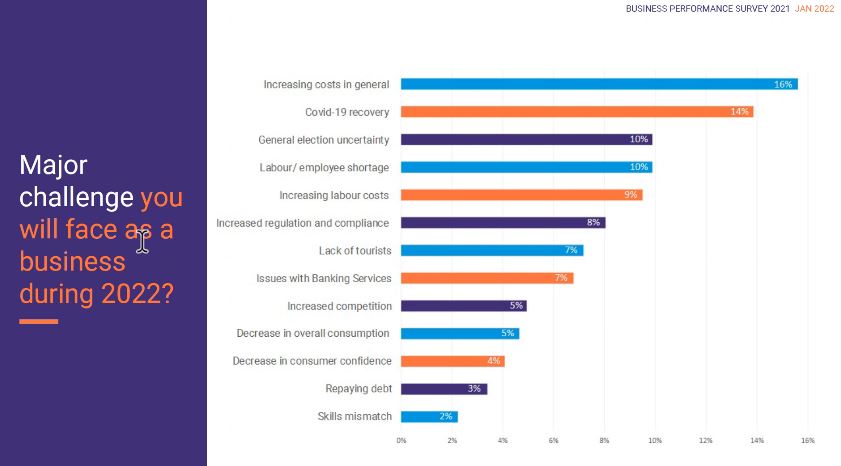
Uncertainty due to the general election and the labour market crisis are also prominent concerns(10 per cent). The importance given to labour market issues is also reflected in the nine per cent who expressed concern about rising labour costs.
Other challenges identified by respondents included increased regulation and compliance costs, lack of tourists, and issues with banking.
1,695 businesses found employing non-EU workers illegally in 2023
The figure amounts to a significant portion of all employers in Malta
20 years of EU membership ‘a milestone for growth, modernisation, shared prosperity’ – MBB
Malta’s inclusion in the EU’s Single Market has fuelled ‘significant strides’ in various economic sectors
Buġibba’s Empire Cinema to be transformed into 167-bedroom hotel
St Paul Bay's local council had objected to the plans


